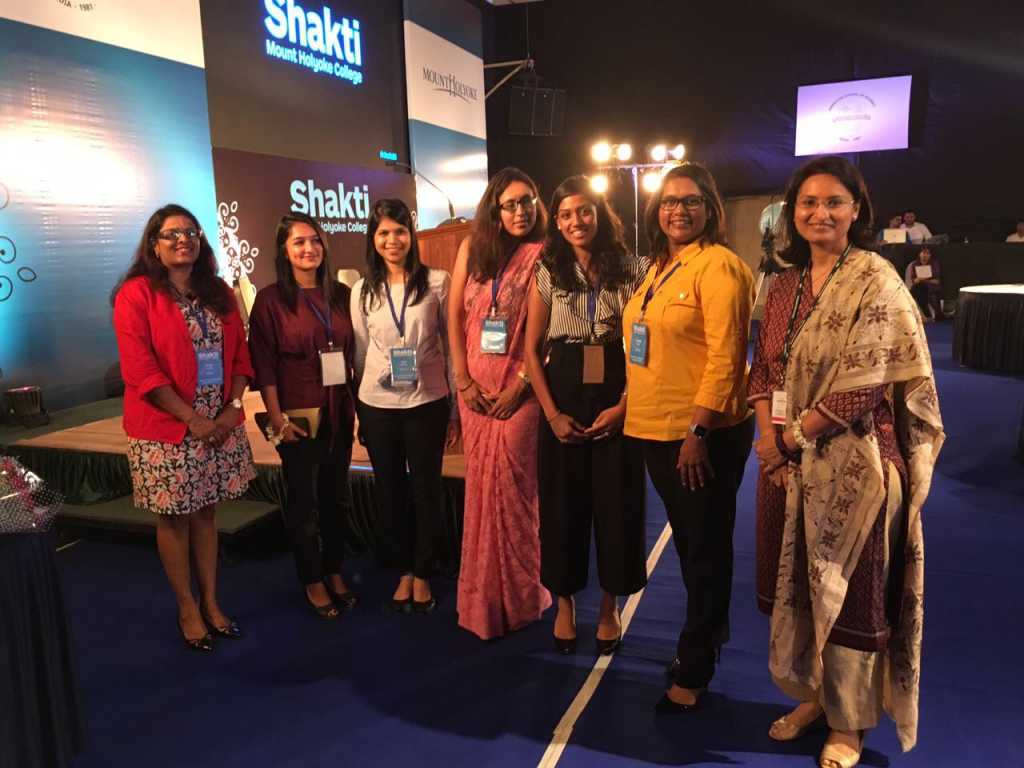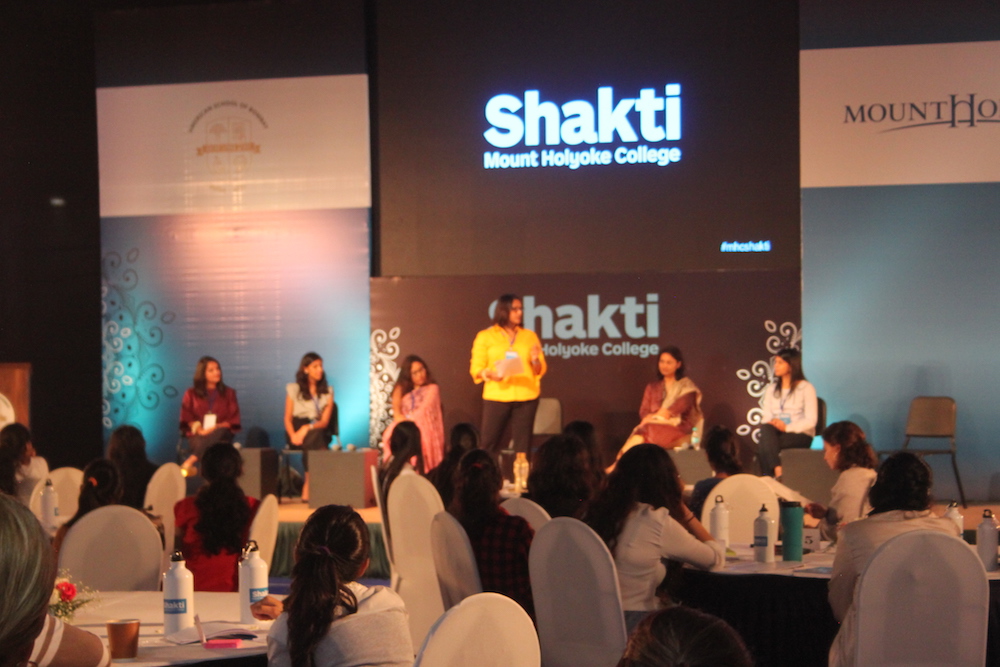The MHC Shakti, presented by the Mount Holyoke College (MHC) is a unique program that was designed with the goal of inspiring and encouraging leadership among young women in India and this year, MHC worked with partners such as The American School of Bombay and The Red Pen, who hosted an hour-long panel at the MHC Shakti Conference discussing the importance of a STEM education – a curriculum based on educating students in four specific disciplines – science, technology, engineering, and mathematics.
A STEM training can open up a wide range of careers, including entrepreneurship, banking, consulting or writing. The conference brought together women who have studied STEM subjects but are now successfully pursuing a diverse range of professions. They spoke about their journey and offered advice, insights on why and how a STEM education helped them. The panel included accomplished women such as Madhulika Mazumdar, Anita Pawaskar, Yuti Jhaveri, Radhika Gupta, Namita Mehta and Anjali Bansal, and was moderated by Kavita Mehta, CEO & Co-Founder of The Red Pen.

Yuti Jhaveri, Founder and CEO of The Curiosity Club, went on to pursue Medicine in America, but changed her mind in the first semester and switched to Biomedical Engineering. When she moved backed to India post her Master’s, she wanted to pursue a career in consulting or investment banking, and found it difficult. The reason being the classic Indian norm of an MBA-degree requirement to get employment in any organization. And that was her first task – to convince people that she didn’t need an MBA degree, and that her Engineering degree would suffice. “I see all that changing now. Companies are ready to accept people with a diverse background, and you can still do well, even if you do not have the relevant degree”, she says.
Anita Pawaskar is a renowned Radio personality and has a background in Physics, Maths, Electronics and Literature. During her time in the United Kingdom, her Commercial Mathematics teacher had a different approach to the subject and taught them in rather innovative ways how to put their formulas and learnings into practical use. This experience has since, helped her apply it in everyday life, especially in radio programming – to calculate the time spent on air, the length of time for each song, allotting time slots for radio hosts, panning advertisers’ commercial time, analyzing listenership time, etc.

Namita Mehta’s educational qualifications and her current career are absolutely poles apart. She has a Master’s degree in Biochemistry from the University of Oxford and is now an undergraduate educational consultant with The Red Pen. Her degree, however, has given her the expertise to help students think about research projects they would want to pursue, and help them towards it. “There’s a direct link between my degree and how I can help the students, not just in terms of superficial ideas but how to go about executing them in a more coherent manner. The analytical skills I’ve learnt in my degree have helped me pen down my thoughts and analyse data, and make the information that students want to put before the admissions officer more concise and effective”, says Namita.
Our country has seen a handful of great female leaders, and as a society that’s still embedded in traditional values, it is hard for women to take a stand when it comes to their education. When a girl wants to pursue career n STEM, it is stigmatized and regarded as inappropriate. “People feel like it’s a big investment. In some parts of society, the thinking is that once the girl finished her education, she will get married off”, says Kavita Mehta. The need for family is one of the major reasons why women are deterred from doing whatever they want to, when it comes to their career and a STEM education.
Considering that everything in today’s world revolves around technology, STEM is directly and indirectly related to whatever you want to pursue. “Music has always been my passion. The only way I could connect music to my STEM subjects were through instruments and sound waves. Radio is all about frequency modulation. You are using technology and you don’t even realize it, irrespective of whatever discipline you come from. STEM is very much a part of our lives”, says Anita.

There is a continuing gender bias and it is reflected in statistics. This gender bias leaves women with a harder battle to fight, but it’s a battle you must not give up on. A step-by-step plan and proper reasoning would help build your case about why you are choosing to go in for that particular career. “If you stay undeterred, there wouldn’t be much difficulty convincing people of your success. If you can face challenges with all your might, there isn’t any reason why you would give up”, adds Anita.
Anjali connotes, “A lot of what people think about you depends on what you think about yourself. It’s not easy to not bother about what your family and friends think. Fundamentally, you have to be authentic to yourself. If you know who you are, you need not justify yourself to other. Contrary to what you’ve been taught as a child, putting yourself at the center of your universe is very much important.”

Whether women will be put on as equal a pedestal as men are, is something only time will tell. Although some of the drawbacks associated with female education have disintegrated over the course of the last few years, we still have a long way to go. And despite the complex nature of our society, we must understand that education is a fundamental right irrespective of the gender.



























